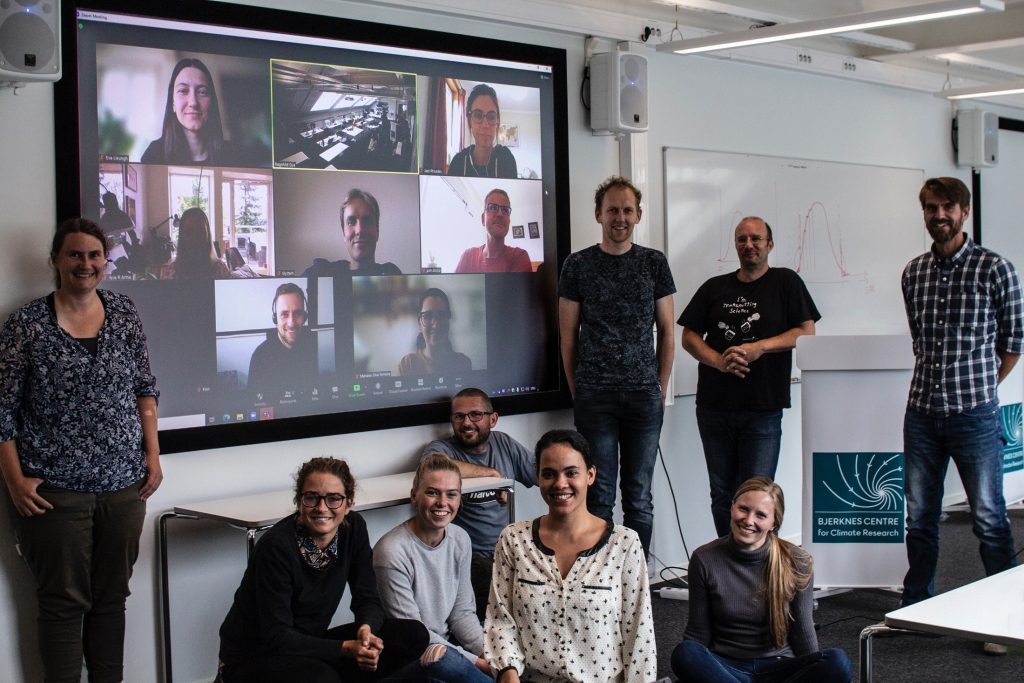The CHESS course “Integral projection models (IPM): From population ecology to climate change studies” was held from Monday 30th of August to Friday 3rd of September 2021 in a semi-virtual and in-person format. There was a total of 4 main lecturers and 13 participants, 5 in-person and 8 online, from universities and research institutes all over Norway (Bergen, Oslo and Tromsø) and all over the world (from Brazil to Germany).
The main objective of the course was to learn how to build integral projection models (IPMs) for each participants population ecology studies from the experienced population ecologists: Joachim P. Töpper, Olav Skarpaas, Eelke Jongejans and Andrew Allen. In addition to that a large part of the course was also to start discussing how aspects from population ecology could be integrated into climate models like the FATES platform (The E3SM Functionally Assembled Terrestrial Ecosystem Simulator), lead by Sonya Geange and Eva Lieungh.
We started the course with learning the basics of IPM’s, and practical’s to build our own models. Many participants were able to start to build a model for their data, and had great use of the practical part of the course. In addition, we had lectures on the complexities of life histories with long-lived species, clonality, dormancy etc., and learned different ways to incorporate this into models. During the practical’s the online participants worked in their own breakout rooms where they could help each other by discussing and get feedback from course teachers. While the in-person people could chat in the room and collaborated across projects.
On Thursday Sonya Geange introduced how the FATES platform works, and we were able to run models for ourselves, tweaking the settings and starting to think about how our population ecology data could influence these models. On Friday followed an interesting discussion on the same topic that will lead to a seminar on the EMERALD projects seminar meetings, and potentially also an opinion piece on this topic with course participants included. In addition, we will start a Slack-channel to keep fostering the population ecology community and ideas that came from this course.
The course participants feedback on the course was very positive. They said the course was very relevant for their studies, that the teachers were competent and approachable, and that it was organized well.
Text by: Ragnhild Gya
Photo by: Andreas Hadsel Opvik

